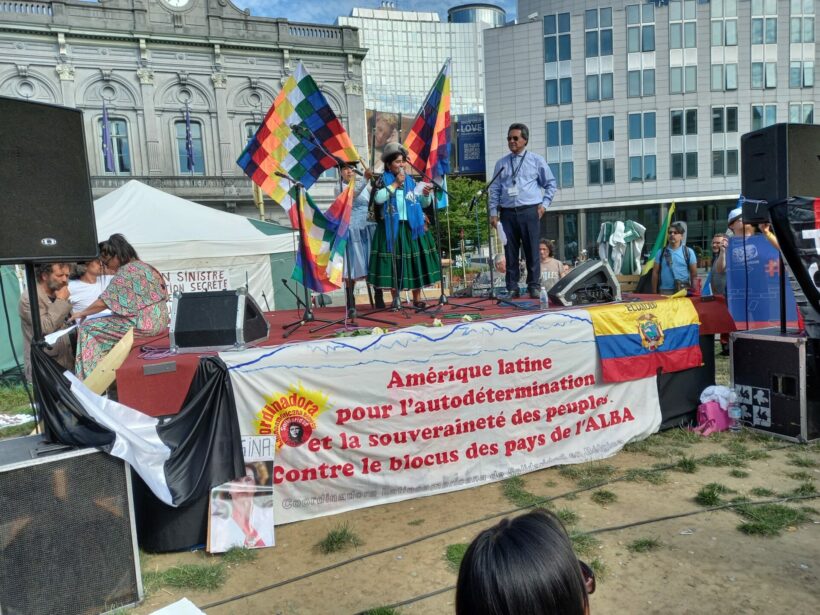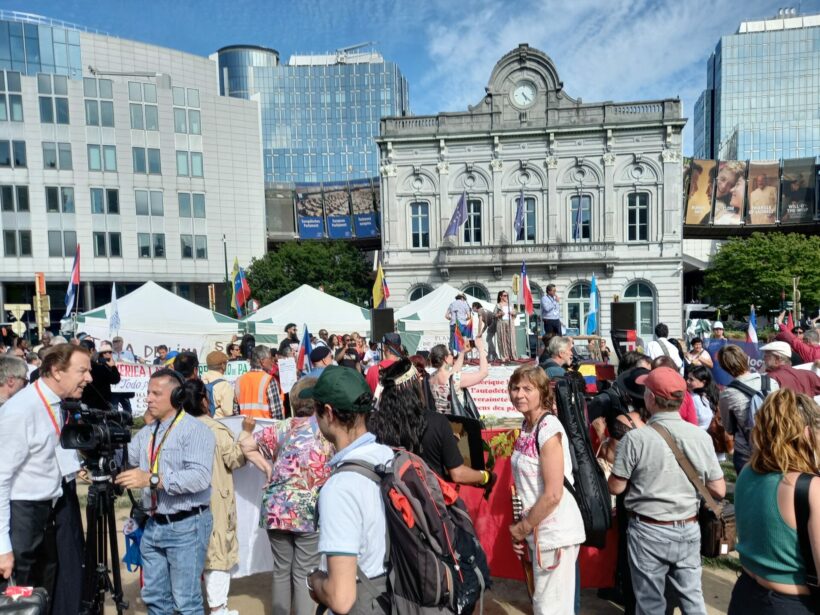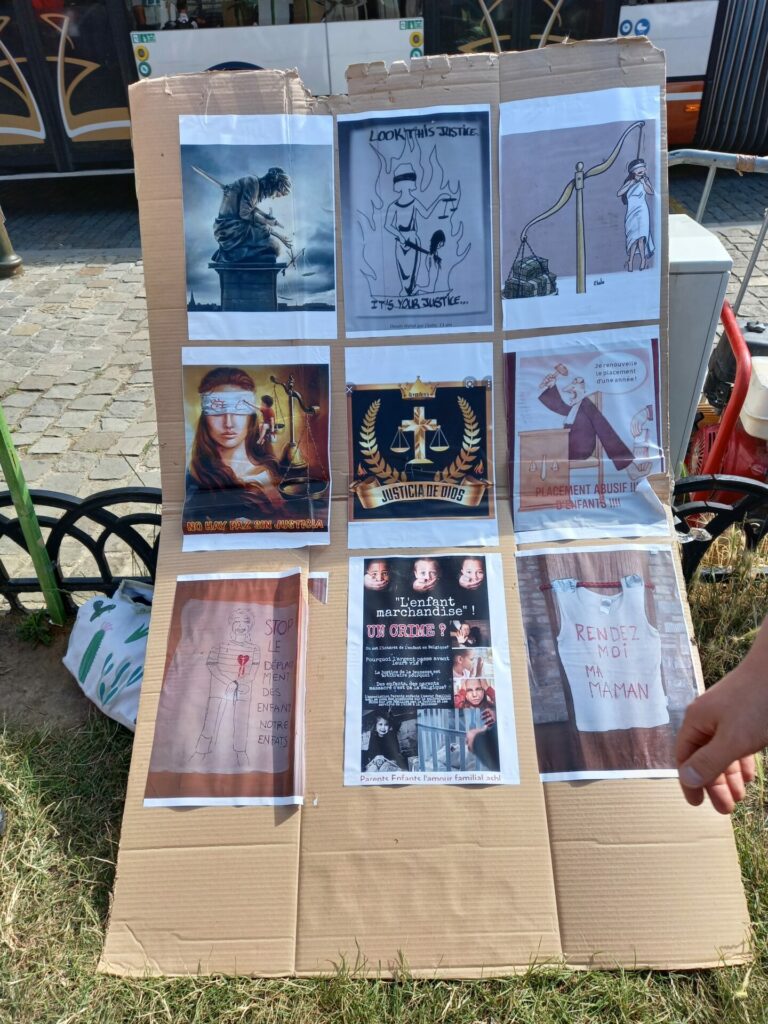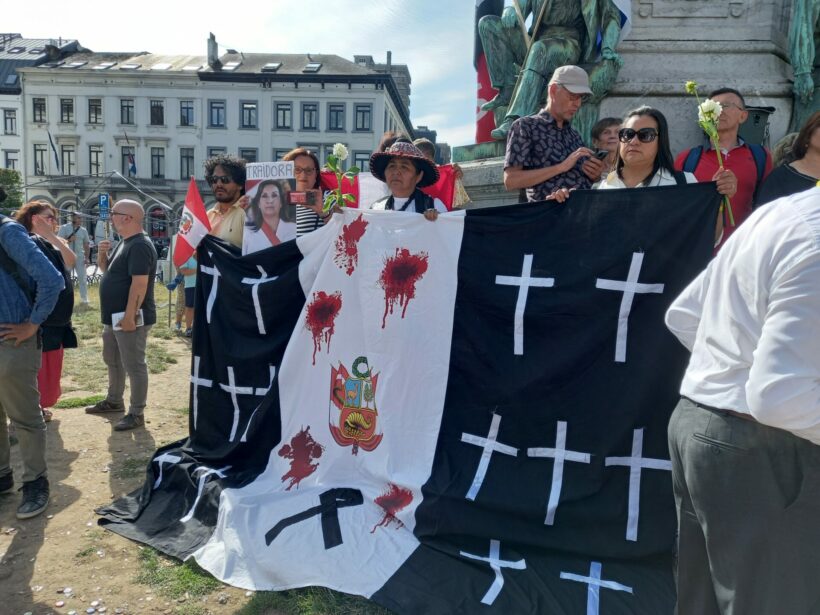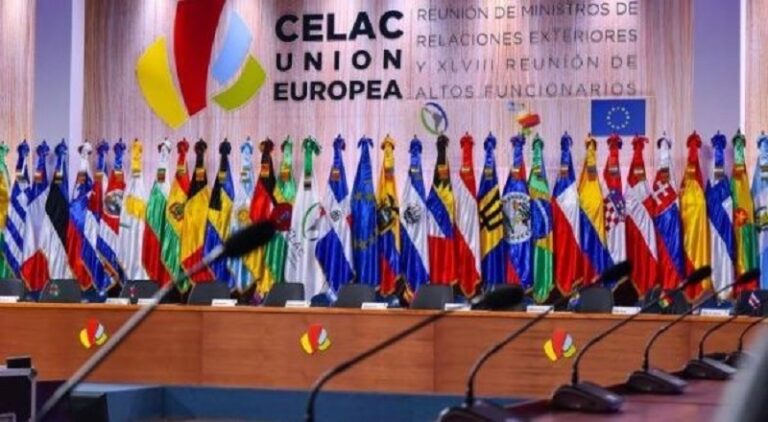On 17 and 18 July two Latin American-Caribbean summits were held in Brussels: the first, on the premises of the European Union, for a meeting between Latin American presidents and European leaders (CELAC-EU).
The second, the “People’s Summit”, was held at the VUB (Dutch University of Brussels) and brought together hundreds of associations, trade unions and NGOs to reflect together on solutions off the beaten track of neo-colonialism.
The themes of the first summit: Ukraine and trade
It took eight years for such a summit to take place between the leaders of the 33 Latin American and Caribbean countries and the European Union. In the imposing buildings of the European institutions, the interests of the Europeans did not really coincide with those of their Latin American counterparts. While the EU tries to rally support for Ukraine, Brazil has refused to supply arms to Ukraine or to impose sanctions against Vladimir Putin’s Russia. President Luiz Inácio Lula da Silva has provoked controversy by repeatedly asserting that responsibility for the conflict is shared, even though he has condemned Russia’s invasion of Ukraine. And countries such as Cuba and Venezuela have clearly reiterated their alliance with Moscow.
Of course, the economic aspect of resources remains a priority in these meetings, and lithium, for example (present in Argentina and Bolivia), without which the energy transition envisaged by Europe will not happen, is of obvious interest to the EU. Argentina is one of the world’s leading producers of this mineral, and together with Bolivia and Chile forms the “lithium triangle”, with almost 56% of the world’s reserves. At the end of June, Bolivia announced that China and Russia would invest $1.4 billion to open two lithium mines in the country.
On the eve of the summit, the head of German diplomacy, Annalena Baerbock, made a tour of the region (Brazil, Argentina, Chile and Mexico) in mid-June, where she announced a 10 billion euro boost to European investment through the ‘Global Gateway’ strategy, aimed at countering the influence of China’s ‘New Silk Road’ programme.
The Mercosur Treaty on trade in food products between countries, an agreement dreaded by European farmers, is also at the centre of the negotiations.
The other summit, that of citizens, agents of change
In parallel to this meeting, another alternative summit was held in the VUB buildings, the “people’s summit”, which brought together a hundred NGOs, trade unions, farmers’ associations and citizens.
Thousands of people took part in panel discussions and experience-sharing sessions, which provided an opportunity for grassroots information and action. The priorities were climate change, social injustice and the necessary transformation of mentalities.
In the evening, at the Festival des Solidarités, we were able to sing along to the music of Sindicato Sonico (Mexico, Cuba, Honduras, Chile, Spain and Belgium), César, Osvaldo Torres and Silvia Balducci (Chile, France, Belgium, Italy), Ismaël Querales (Venezuela) and Animation Brésil (Brazil, France).
Messages of struggle and hope were interspersed between these different performances. Jean-Luc Mélenchon (NUPES-France), Cristina Faciaben (CCOO trade union, Spain), Hilal Sor (ABVV Métallos, Belgium), Raoul Hedebouw (PVDA, Belgium), Paula Polanco (Intal, Belgium) and Jeremy Corbyn (UK) took part in the event.
The presidents of Bolivia, Cuba, Venezuela and Colombia also came to lend their support to the force of their peoples’ lives. Moving speeches, punctuated by slogans shouted and chanted by the crowd… a warm atmosphere, vibrant with emotion and force.
I listened to Mélenchon’s (France) anti-capitalist speech, then Miguel Díaz-Canel’s speech denouncing the boycott against the United States, followed by the Bolivian and Colombian presidents. They all gave magnificent speeches and made the songs and slogans chanted by the audience their own.
It was a very exciting atmosphere, a great force of joyful humanists, many young men and women, proud of their origins, full of hope for the future.
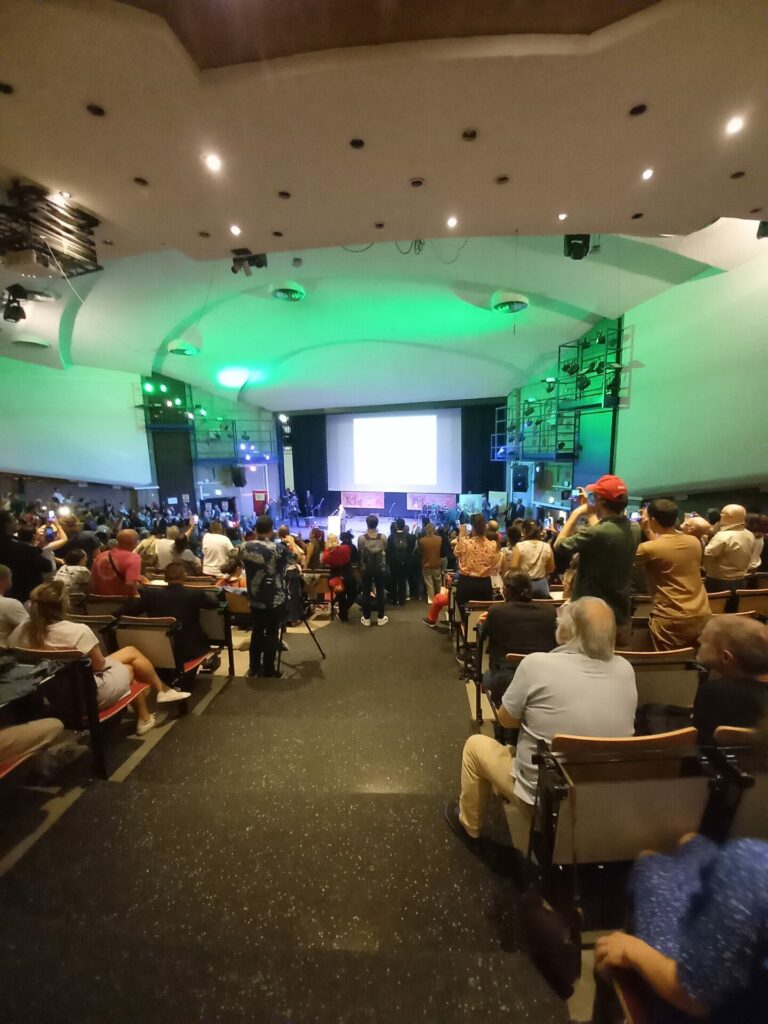
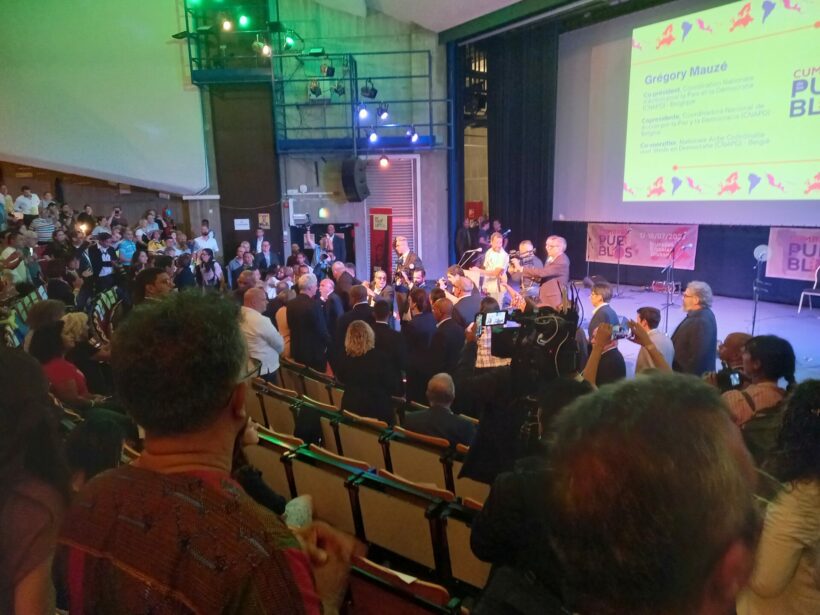
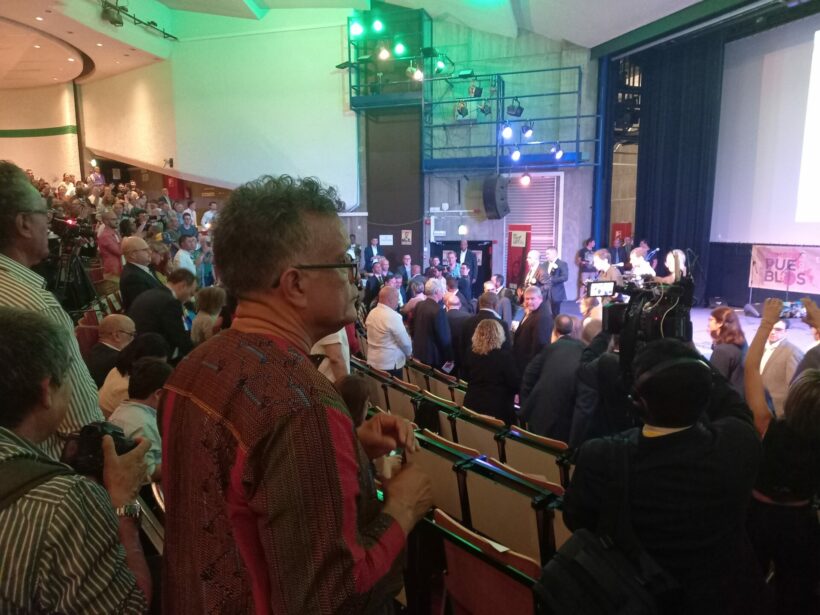
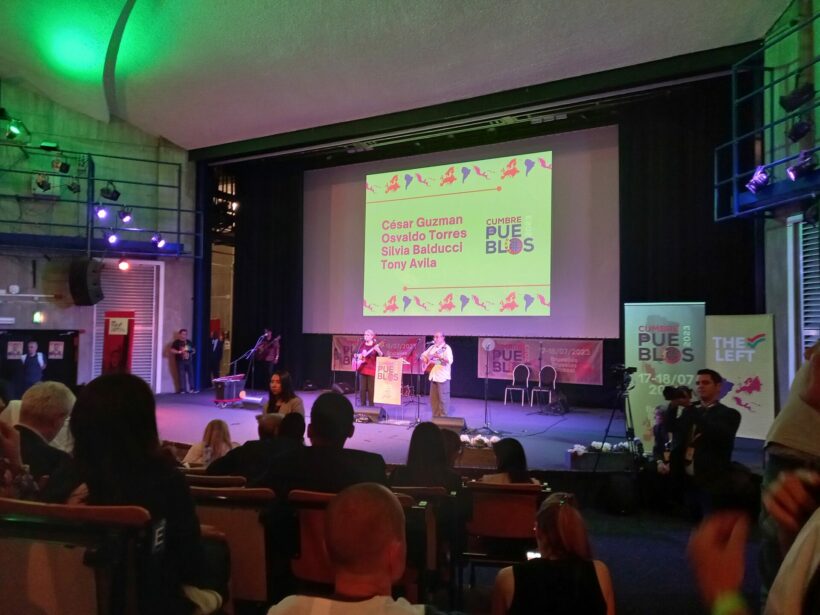
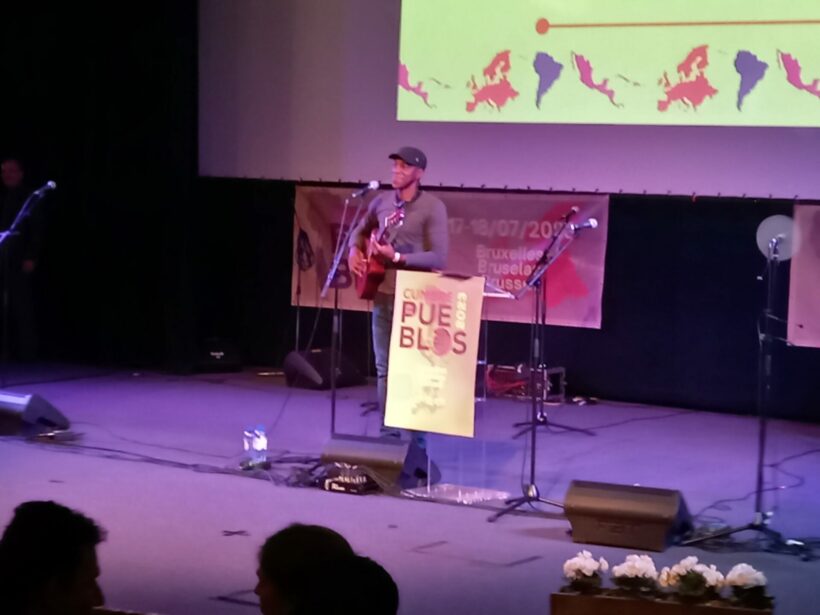
We sincerely hope that this shared emotion will translate into courageous decisions, so necessary in these uncertain times.
Some pictures of the solidarity demonstration organised by the Latin American Coordination on Luxembourg Square in Brussels.
